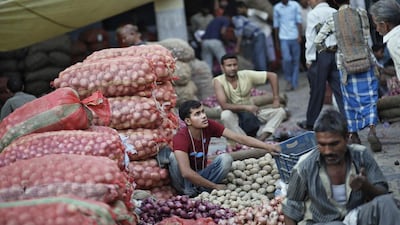India has scuttled a WTO trade deal to defend the food subsidies that hinder its agriculture efficiency
With India's sole opposition scuttling a deal that would have lowered global trade barriers, the reactions have varied from whether the new government in Delhi is serious about reforms to its economy or if this spells the failure of the Doha Round of trade liberalisation – or even the end for the World Trade Organisation itself.
India refused to sign off the deal unless its own food subsidy programme was exempted from the financial penalties that would have been imposed for its anti-competitive effect. The failure to find a compromise with India by the July 31 deadline prevented an agreement described as the biggest global trade deal in the last 20 years.
While some of the more cataclysmic reactions are unfounded because the vote can be retaken as soon as next month if a compromise with India can be reached, there remain several important points worth noting.
One is that India itself would have benefited from the deal but sought instead to perpetuate food subsidies because it says farmers need them, even though critics slate them as archaic, inefficient, prone to corruption, crippling to the country’s finances and, most notably, failing to aid the people it was designed to help. Much of the food rots before being used.
This raises fundamental questions about the efficiency of India’s agriculture industry, which employs nearly half of the country’s workers. By contrast, the United States produces more food than it needs with only two per cent of its national workforce and other developing nations such as Thailand and Vietnam have a much more efficient agriculture sector than India does and can export their excess. Why is India not making this sector robust enough to survive without intervention?
Another question is what this means for the WTO itself. Predictions about the impending demise of the Doha Round have been a recurring theme. Each time it gets revived, albeit with the reforms watered down a little more. While a compromise might be found to secure India’s assent, the final agreement might be so diluted as to be worthless.
What is perplexing is that India stood to gain from the WTO deal, as does most of the developing world. India’s refusal to tackle its subsidies bodes ill for its commitment to economic reform, making this a time for some robust efforts by the multilateral trade community to help India see where its own long-term interests lie.

